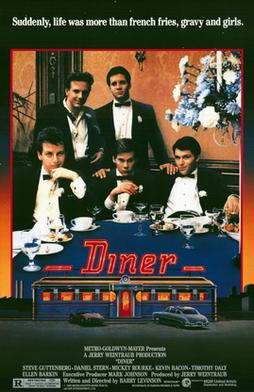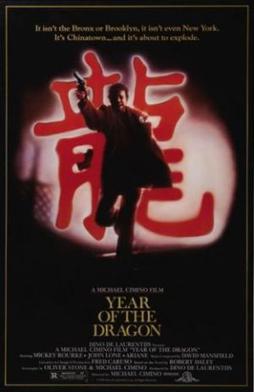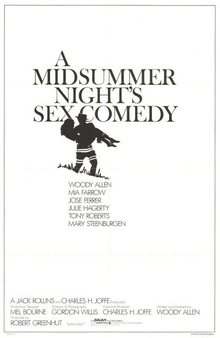
Nicholas King Nolte is an American actor. Known for his leading man roles in both dramas and romances, he has received a Golden Globe Award as well as nominations for three Academy Awards and a Primetime Emmy Award. Nolte first came to prominence for his role in the ABC miniseries Rich Man, Poor Man (1976) for which he received a Primetime Emmy Award for Outstanding Lead Actor in a Limited Series or Movie nomination. He won the Golden Globe Award for Best Actor – Motion Picture Drama for The Prince of Tides (1991). He received three Academy Award nominations for The Prince of Tides (1991), Affliction (1998) and Warrior (2011).

Hope and Glory is a 1987 comedy-drama war film written, produced, and directed by John Boorman based on his own experiences growing up in London during the Second World War. It was distributed by Columbia Pictures. The title is derived from the traditional British patriotic song "Land of Hope and Glory". The film tells the story of the Rowan family and their experiences, as seen through the eyes of the son, Billy.

Pauline Kael was an American film critic who wrote for The New Yorker from 1968 to 1991. Known for her "witty, biting, highly opinionated and sharply focused" reviews, Kael's opinions often ran contrary to those of her contemporaries.

Carnal Knowledge is a 1971 American comedy-drama film directed by Mike Nichols and written by Jules Feiffer. It stars Jack Nicholson, Art Garfunkel, Ann-Margret, Candice Bergen, and Rita Moreno.

Diner is a 1982 American comedy-drama film written and directed by Barry Levinson. It’s Levinson's screen-directing debut and the first of his "Baltimore Films" tetralogy, set in his hometown during the 1940s, 1950s and 1960s, the other three films are Tin Men (1987), Avalon (1990), and Liberty Heights (1999). It stars Steve Guttenberg, Daniel Stern, Mickey Rourke, Paul Reiser, Kevin Bacon, Timothy Daly and Ellen Barkin and was released on March 5, 1982. The movie follows a close-knit circle of friends who reunite at a Baltimore diner when one of them prepares to get married.

Point Blank is a 1967 American crime film directed by John Boorman, starring Lee Marvin, co-starring Angie Dickinson, Keenan Wynn and Carroll O'Connor, and adapted from the 1963 crime noir pulp novel The Hunter by Donald E. Westlake, writing as Richard Stark. Boorman directed the film at Marvin's request and Marvin played a central role in the film's development. The film grossed over $9 million at the box office in 1967 and has since gone on to become a cult classic, eliciting praise from such critics as film historian David Thomson.

Down and Out in Beverly Hills is a 1986 American comedy film based on the 1919 French play Boudu sauvé des eaux, which was later adapted as Boudu sauvé des eaux, a 1932 film by Jean Renoir. Down and Out in Beverly Hills was directed by Paul Mazursky, and starred Nick Nolte, Bette Midler and Richard Dreyfuss. The plot follows a rich but dysfunctional family who save the life of a suicidal homeless man. Musician Little Richard appears as a neighbor, and performs "Great Gosh A'Mighty" during a party scene.

Revolution is a 1985 British historical drama film directed by Hugh Hudson, written by Robert Dillon, and starring Al Pacino, Donald Sutherland, and Nastassja Kinski. The film stars Pacino as a fur trapper in the Colony of New York who involuntarily gets enrolled in the Revolutionary forces during the American Revolutionary War.

Year of the Dragon is a 1985 American neo-noir crime thriller film co-written and directed by Michael Cimino, and starring Mickey Rourke, John Lone, and Ariane Koizumi. The film follows a tough New York City police captain (Rourke) battling a ruthless Chinese-American Triad boss (Lone). The screenplay, written by Cimino and Oliver Stone, is based on a 1981 novel of the same title by Robert Daley.

A Midsummer Night's Sex Comedy is a 1982 American science fiction sex comedy film written and directed by Woody Allen, starring Allen and Mia Farrow.

Everybody Wins is a 1990 mystery thriller film directed by Karel Reisz, starring Debra Winger and Nick Nolte. The screenplay was written by Arthur Miller, based on his one-act play Some Kind of Love Story (1984). It is loosely inspired by an actual 1970s murder case in Canaan, Connecticut which was the subject of the television film A Death in Canaan (1978) directed by Tony Richardson. It was also the last film to be directed by Karel Reisz before his death in 2002.

The Fury is a 1978 American supernatural horror thriller film directed by Brian De Palma and starring Kirk Douglas, John Cassavetes, Amy Irving, Carrie Snodgress, Charles Durning, and Andrew Stevens. The screenplay by John Farris was based on his 1976 novel of the same name.

Extreme Prejudice is a 1987 American neo-Western action thriller film directed by Walter Hill, from a screenplay by Harry Kleiner and Deric Washburn, from a story by John Milius and Fred Rexer. It stars Nick Nolte and Powers Boothe, with a supporting cast including Michael Ironside, María Conchita Alonso, Rip Torn, William Forsythe, and Clancy Brown.

Baby Boom is a 1987 American romantic comedy-drama film directed by Charles Shyer, written by Nancy Meyers and Shyer, and produced by Meyers and Bruce A. Block for United Artists. It stars Diane Keaton as a yuppie who discovers that a long-lost cousin has died, leaving her a fourteen-month-old baby girl as inheritance.

Kinjite: Forbidden Subjects is a 1989 American action thriller film starring Charles Bronson and directed by J. Lee Thompson. As Thompson's final film, it was the last project he and Bronson did together—a long and famed Hollywood collaboration. The word "kinjite" (禁じて) translates to English as "forbidden move", hinting at the subject matter.

State of the Art: Film Writings 1983–1985 is the eighth collection of movie reviews by the American critic Pauline Kael.

Someone to Watch Over Me is a 1987 American neo-noir romantic thriller film directed by Ridley Scott and written by Howard Franklin. It stars Tom Berenger as a police detective who has to protect a wealthy woman, who is a key witness in a murder trial. The film's soundtrack includes the George and Ira Gershwin song from which the film takes its title, recorded by Sting, and Vangelis' "Memories of Green", originally from Scott's Blade Runner (1982).

The Big Town is a 1987 American drama neo-noir thriller film about a young man who comes to the big city to work as a professional gambler, in the process becoming romantically involved with two women—one of whom is already married. The film was directed by Ben Bolt and Harold Becker (uncredited) and it stars Matt Dillon, Diane Lane, and Tommy Lee Jones.

Out Cold is a 1989 American black comedy film directed by Malcolm Mowbray, and stars Teri Garr, Randy Quaid and John Lithgow.

"Raising Kane" is a 1971 book-length essay by American film critic Pauline Kael, in which she revived controversy over the authorship of the screenplay for the 1941 film Citizen Kane. Kael celebrated screenwriter Herman J. Mankiewicz, first-credited co-author of the screenplay, and questioned the contributions of Orson Welles, who co-wrote, produced and directed the film, and performed the lead role. The 50,000-word essay was written for The Citizen Kane Book (1971), as an extended introduction to the shooting script by Mankiewicz and Welles. It first appeared in February 1971 in two consecutive issues of The New Yorker magazine. In the ensuing controversy, Welles was defended by colleagues, critics, biographers and scholars, but his reputation was damaged by its charges. The essay and Kael's assertions were later questioned after Welles's contributions to the screenplay were documented.




















